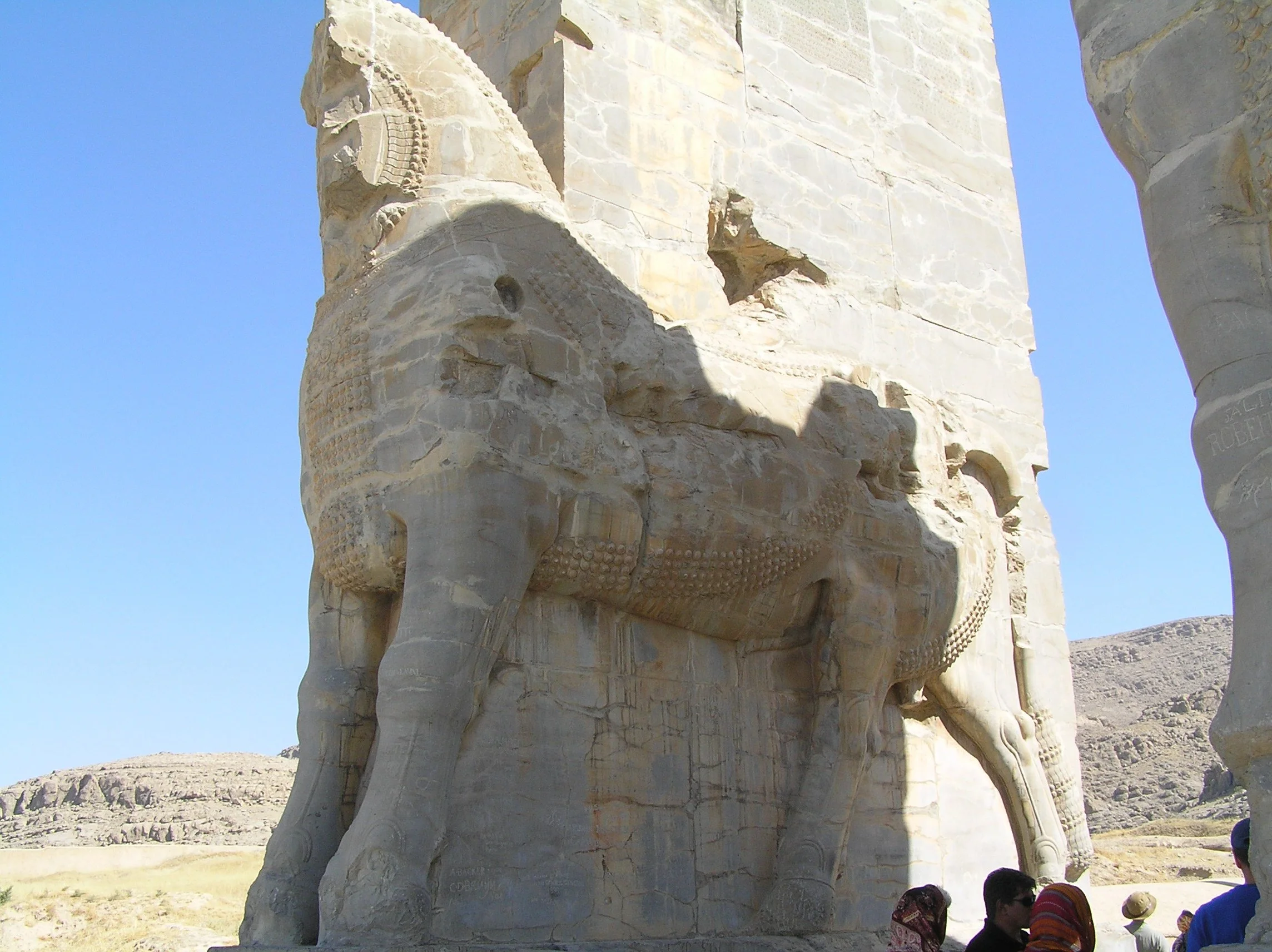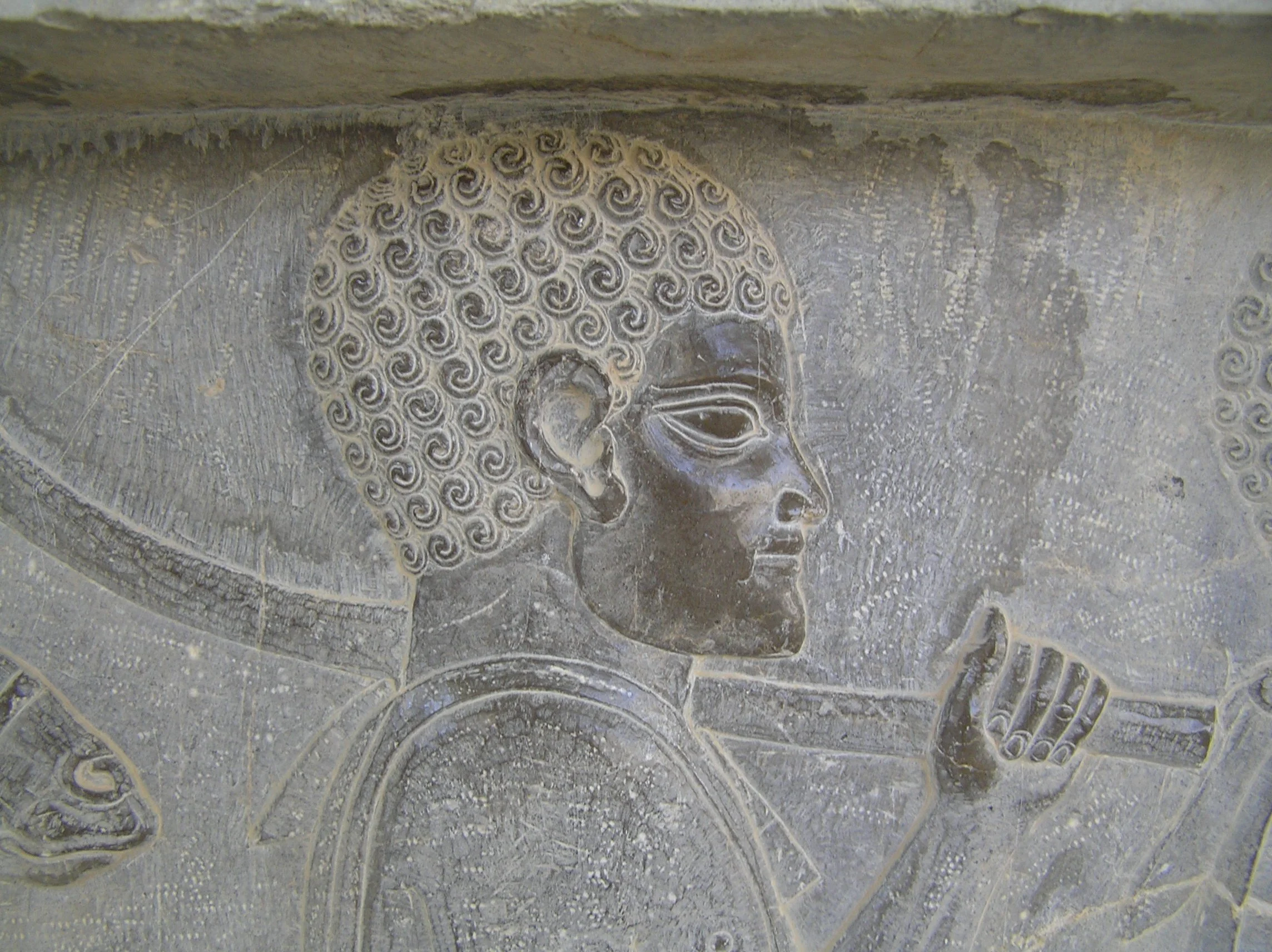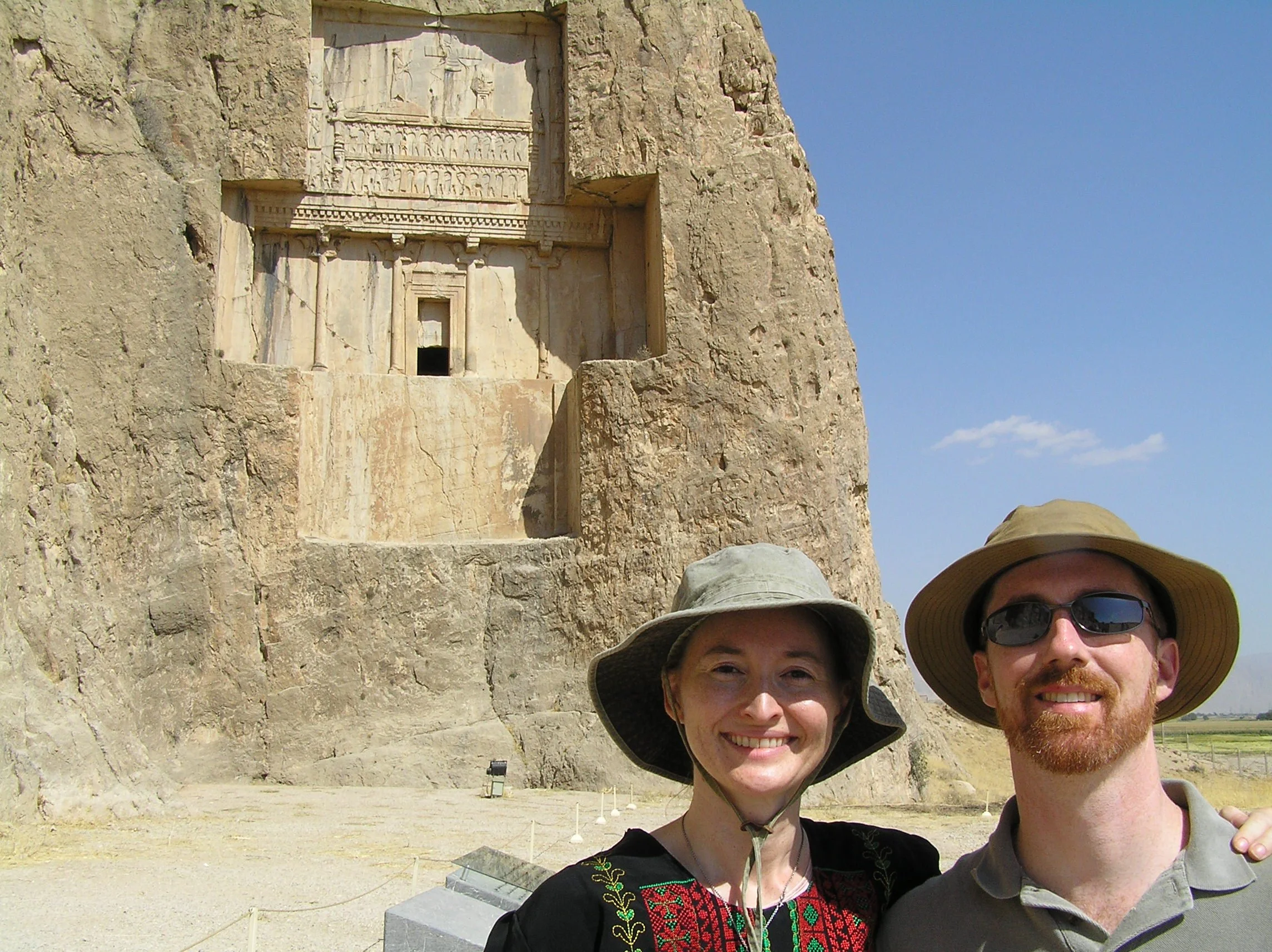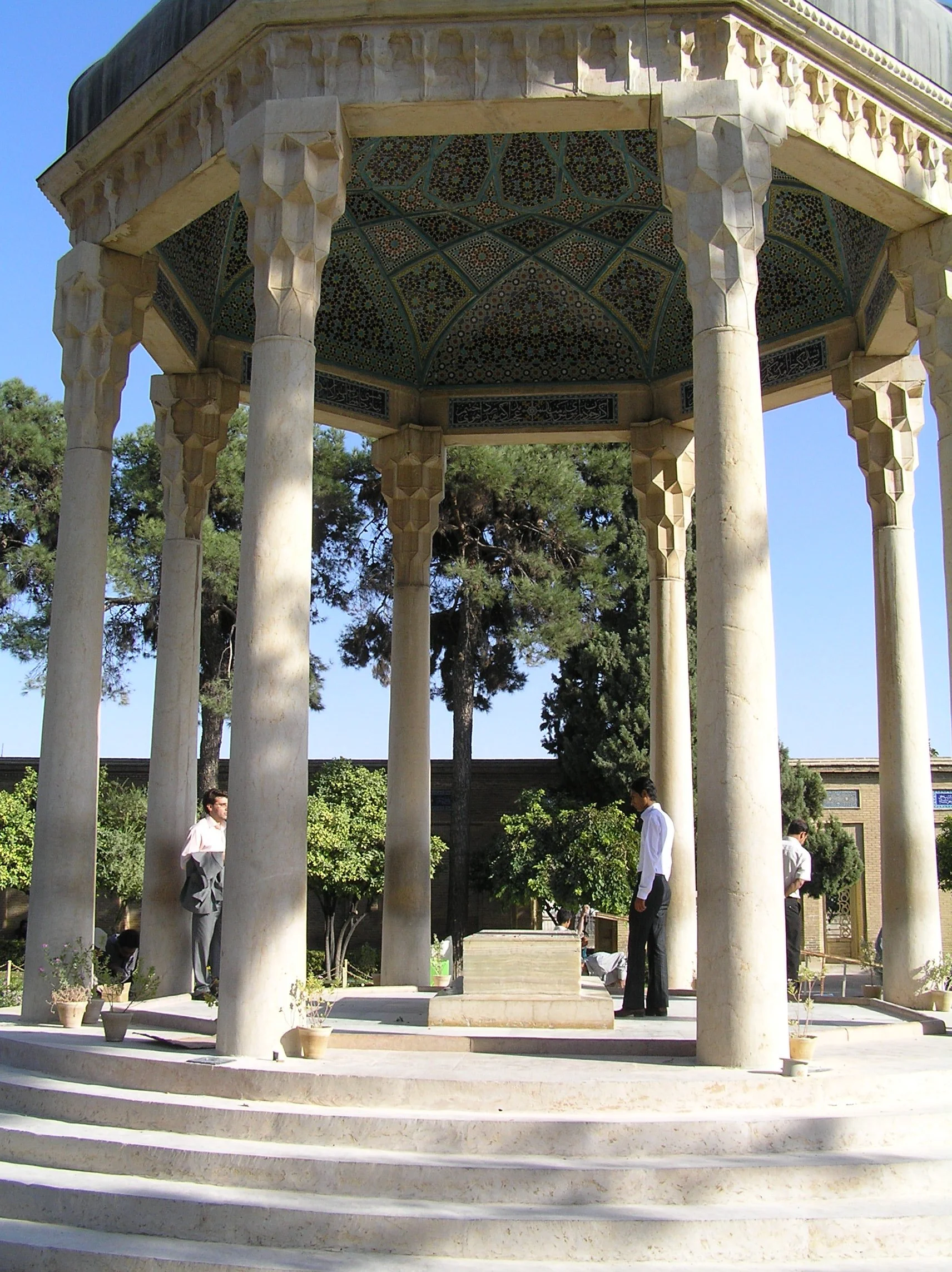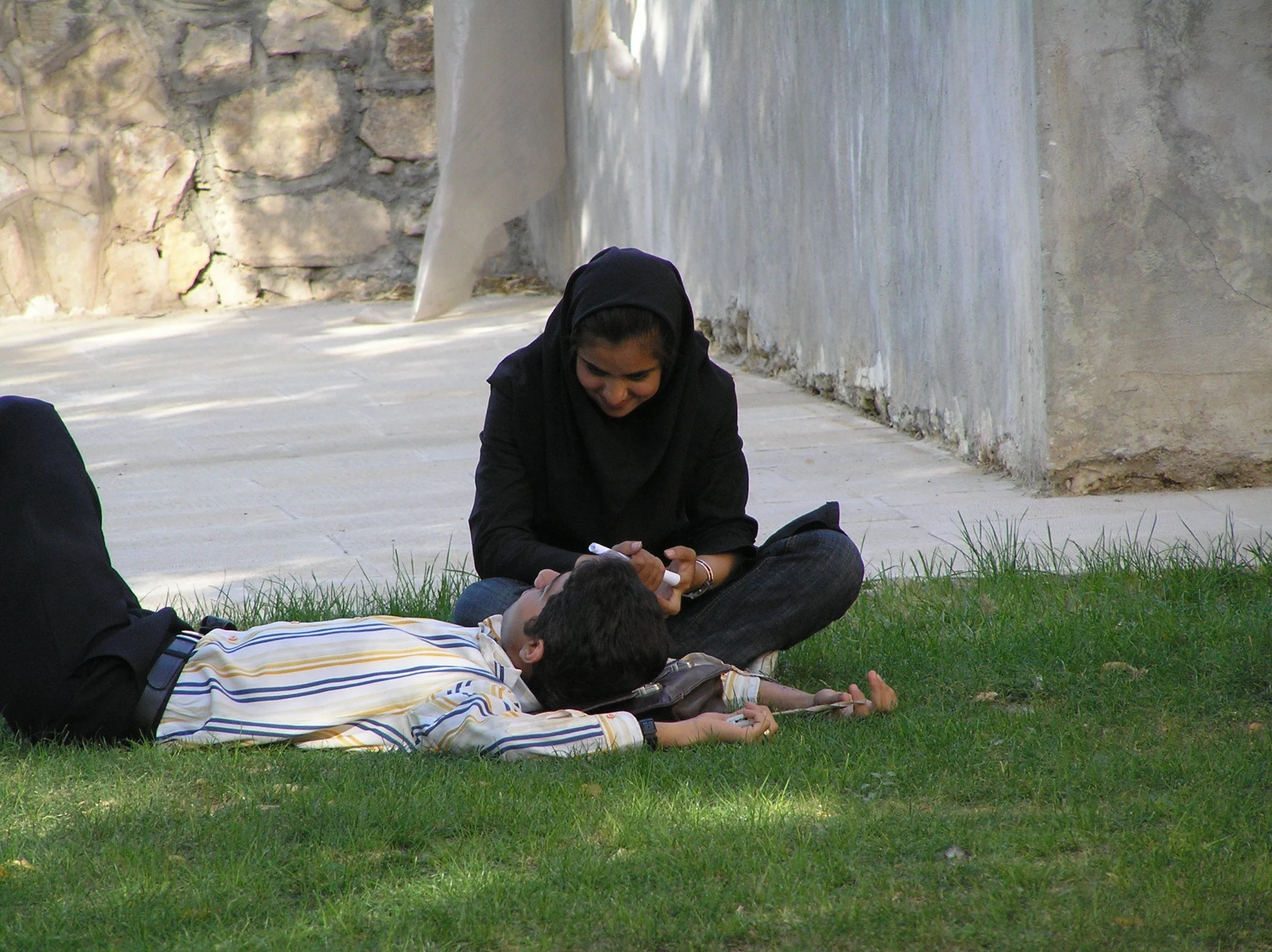Ruins, Graves, and Poems
Persepolis.
Today was a varied and rich day. Our first stop was Persepolis. Wow. I have been fortunate enough to see some of the great ruins of the Middle East: Syria's Palmyra, Egypt's Pyramids, Lebanon's Baalbeck, Jordan's Petra, Iraq's Babylon. This place definitely holds its own among those notables.
The attention to detail in the bas relief is breathtaking.
The building of the city was started by Darius the Great, of the Achaemenid Dynasty (and Old Testament Daniel fame), as his central capital. It was built over the course of 190 years, was never really finished, and ended up being torched by Alexander the Great. As a result of the Macedonian destruction, there is tremendous damage to the place, though some of the bas reliefs were knocked on their faces and, as a result, remain relatively well-preserved. One wall is particularly notable, being the face of the stairwell by which representative subject nations took their gifts of tribute to the king. A parade is carved into the rock of people from many of the 127 provinces in the Persian Empire: from Ethiopians and Libyans in the West to Indians in the East and even parts of Greece as the Persian Empire extended into Europe.
Even though the Achaemenid Empire was an Empire, it seems to have been a relatively enlightened one that encouraged tolerance and plurality. The Old Testament bears witness to this as it speaks of their kings as benevolent rulers who gave the Jews permission to return to Jerusalem to rebuild Temple and city alike. Persepolis represents this tolerance, as the architecture bears the marks of a variety of styles adapted from throughout the Empire.
Royal tomb carved into the side of rock.
A brief drive away is another remarkable site, where three different historical periods are carved into the rock. There are four tombs for Achaemenid kings. Darius was buried here, and it is possible (though not certain) that Xerxes, Artaxerxes I, and Darius II were in the other three. Therefore, it is also possible that this place also held the final resting place of Queen Esther, wife of Xerxes! Elamite and Sassanid dynasties are also represented here through bas reliefs and a Zoroastrian temple.
Hafez’ tomb.
After another tremendous lunch (I'm enjoying our non-hotel meals much more), we made a stop at Hafez' tomb. The 14th century Persian poet is venerated and beloved here in Iran, and is part of the national cultural fabric that makes this place far more interesting than first meets the eye. A Shiite like most Iranians of the 14th century, Hafez could recite the Qur'an from memory (his name in Arabic means he who has memorized). Even so, his poetry was quite subversive. Wine is a frequent topic, as are women and love. He was also subtly satirical of religious authorities, but abstract enough to get away with it.
Now, I'm not a lover of poetry by any stretch. After Dr. Seuss, only e.e. cummings has ever grabbed my attention. But this stuff is exquisite (at least in close enough translation; in Farsi, I understand, it is transcendent). I've put the poem that is printed on his tomb at the end of this entry.
Young people lounging about the grounds of Hafez’ tomb.
We read a few selections, both in Farsi and English, as we stood around the tomb. Throughout the gardens, families and groups of young people - friends and paramours - found shade and cool breeze. It is, in many ways, a place of pilgrimage. As we left, a darwish (known in the West as "dervish") walked past, dressed all in white with a beard like an Orthodox priest; another man stood at the gate with a bird in his hand, trained to pick out pieces of paper bearing verses from Hafez followed by an interpretation of the verse as a fortune. It doesn't take much to transport one back to the 14th century.
Tomorrow we see the rest of Shiraz before we head off to Isfahan. Rumor has it that it's even more beautiful than this place.
++++++++++++
The Tidings of Union
by Hafez
(English translation by Gertrude Bell)
Where are the tidings of union? that I may arise-
Forth from the dust I will rise up to welcome thee!
My soul, like a homing bird, yearning for paradise,
Shall arise and soar, from the snares of the world set free.When the voice of thy love shall call me to be thy slave,
I shall rise to a greater far than the mastery
Of life and the living, time and the mortal span.
Pour down, O Lord! from the clouds of thy guiding grace,
The rain of a mercy that quickeneth on my grave,
Before, like dust that the wind bears from place to place,
I arise and flee beyond the knowledge of man.
When to my grave thou turnest thy blessed feet,
Wine and the lute thou shalt bring in thine hand to me;
Thy voice shall ring through the fold of my winding-sheet,
And I will arise and dance to thy minstrelsy.
Though I be old, clasp me one night to thy breast,
And I, when the dawn shall come to awaken me,
With the flush of youth on my cheek from thy bosom will rise.
Rise up! let mine eyes delight in thy stately grace!
Thou art the goal to which all men's endeavor has pressed,
And thou the idol of Hafez's worship; thy face
From the world and life shall bid him come forth and arise!

